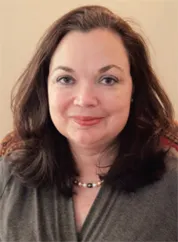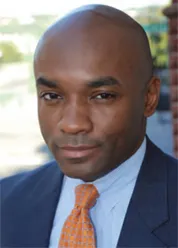The Maurice Walk Scholarship: A Legacy of Generosity
When Maurice Walk, ’21, reached his one hundredth birthday in 1999, more than one hundred and fifty friends and members of his extended family gathered from around the world to celebrate it with him. His daughter, Margot Walk, recalls, “The photograph that was taken on that day meant a great deal to my father, representing the importance of connectedness and continuity. It brought him many smiles and warm memories in the last period of his life.” To honor Mr. Walk, his family created the Maurice Walk Centennial Scholarship in 2002. Walk Scholars receive a full-tuition stipend for all three years of their studies at the Law School. “ We had many reasons for endowing this scholarship,” Ms. Walk says, “but one of them was related to what that photograph conveys: We are hoping that the Walk Scholars might become a group of people who matter to each other in a special way, providing mentoring, support, and networking over the years.”
The family’s other reasons for creating the scholarship are also reflected in aspects of Mr. Walk’s biography. The youngest of nine children in a poor family, he was only able to attend the University of Chicago and then the Law School because he received financial assistance, and after graduation he was able to pursue the job opportunity that interested him most—a position in the United States Foreign Service—because he was not weighed down by debt.
He went on to a diverse career that included teaching at the Law School (“the pinnacle of intellectual achievement for him,” in the words of another of his daughters, Cynthia Walk), a private practice specializing in corporate mergers and reorganizations, and further government service that included working for the influential brother of President Dwight Eisenhower and helping to draft the speech that first introduced the Marshall Plan on the floor of the United States Senate.
“If this fund enables a promising student to choose the University of Chicago and receive the quality of education that my father received, and if it opens opportunities for students to serve the legal profession and their country as my father did, we will consider it a great success,” Margot Walk says.
The Walk Scholars that have been selected thus far show that the family’s generosity is already achieving its intended purposes. A diverse group, from colleges that include Stanford, Wesleyan, and Arizona State and with degrees that include computer science, classics, and journalism, they share one common characteristic—they were highly sought-after candidates who wanted to come to Chicago but might not have been able to, were it not for the Walk Scholarship.
For example, Jenni James, ’12, and her husband were able to pull up stakes from their established life in California so that she could come to the Law School. “My heart was saying Chicago,” she says, “but I couldn’t see how to make it work until I received this amazing gift, for which I am thankful every single day.” Chloe Williams, ’11, had interned at the State Department in Washington, D.C., and in China after graduating from college (at the age of 19), but she was working as a doctor’s office receptionist when her Walk Scholarship came through. “ When I visited Chicago, I so much wanted to be part of this great community, but there’s no way I could have afforded it without this scholarship. The Walk family has changed my life,” she says.
The prospect of graduating with relatively little debt means that James can seriously consider pursuing her dream of practicing environmental or animal law (this summer she’ll work at the Animal Legal Defense Fund), and Williams, who last summer worked in Delhi at the South Asia Human Rights Documentation Center, will be able to continue her interest in international law. For Nathaniel Love, ’09, relative debt freedom meant that even though he and his wife had a baby on the way during his final year of law school, he could nonetheless seek out and accept a court of appeals clerkship with Judge Richard Posner instead of going directly to a law firm. Joshua Macleod, ’08, who was the first person in his family to graduate from college, may be speaking for many current and future Walk Scholars when he says, “The Walk Scholarship meant that I could advance confidently in the direction of my dreams. It’s hard to overstate what the Walk Scholarship has meant to me. The donors have, and will always have, my sincerest gratitude.”


